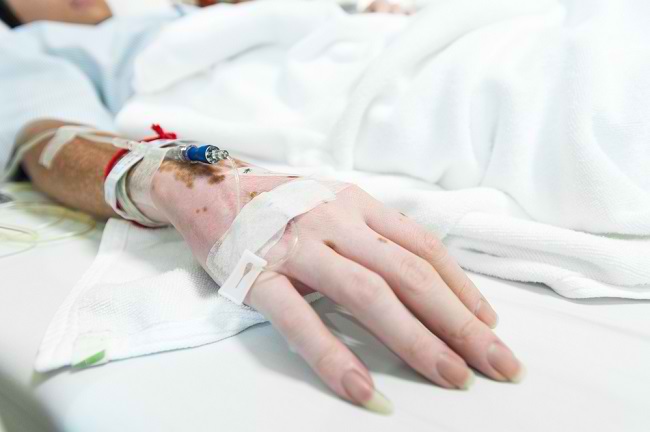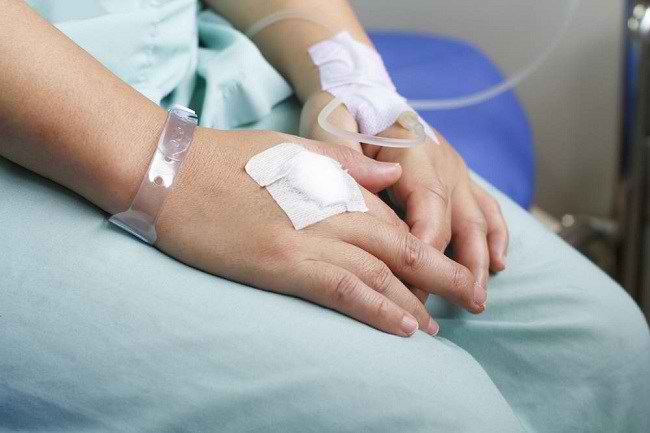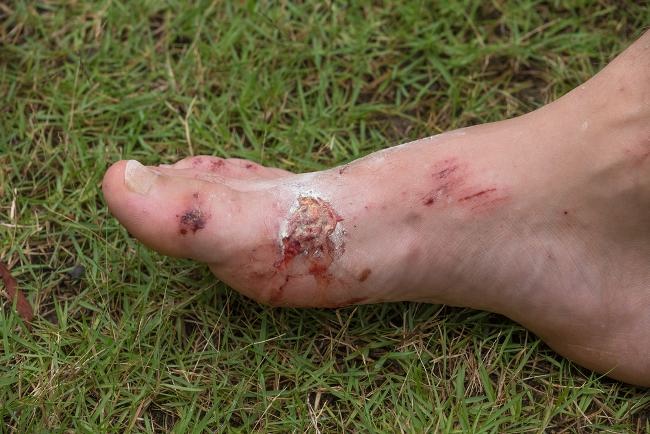Kidney and hypertension specialist is a doctor who studies the science of kidney disease or nephrology in depth. There are two types of kidney specialists differentiated based on the age of the patient being treated, namely children and adults. Kidney specialist role fordiagnose and treatsurepatient treatment who have kidney disease.
Nephrology is a branch of medicine that is included in internal medicine. To become a kidney and hypertension specialist, a general practitioner needs to first complete his education in internal medicine, then continue his education in the subspecialty field of nephrology. After completing the education, the doctor will get the title of specialist in kidney disease and hypertension consultant (Sp.PD-KGH).

In infants and children, disorders of kidney function and urinary tract system can be treated by a pediatric nephrologist.
Field-bdishKidney and Hypertension Specialist
As mentioned above, kidney and hypertension specialists are divided into two, namely for adults (over 18 years) and children (aged 0-18 years). Adult kidney specialists undergo internal medicine specialist training first, then study nephrology. Meanwhile, a pediatric kidney specialist underwent education as a pediatrician before specializing in nephrology for children.
After completing education, kidney and hypertension specialists can immediately practice, take up a career in academia or teaching, join drug companies, medical device companies, or provide dialysis services.
Diseases Treated by Kidney and Hypertension Specialists
Kidney disease can occur in one or both kidneys in the body. There are various factors that increase a person's risk of developing kidney disease, such as age, diabetes, high blood pressure, heart disease, stroke, infections, side effects of medications, and having a family member with a history of kidney disease.
Patients will be referred by a general practitioner to see a kidney specialist if they have symptoms of kidney disease, such as:
- The presence of protein or blood in the urine.
- Dizziness and weakness due to electrolyte disturbances and acid and base imbalance.
- Decreased frequency of urination or no urination at all.
- Swelling in parts of the body or the whole body.
- Paleness and fatigue associated with anemia due to renal impairment.
- Pain in the lower back or waist.
- High blood pressure.
Kidney specialists have knowledge about the prevention, diagnosis, and treatment of various kidney diseases. Diseases treated by kidney specialists are:
- Congenital kidney disease.
- Kidney cancer or tumors, eg Wilms tumor.
- Nephrotic syndrome.
- Polycystic kidney disease (PCOS).
- Acute and chronic renal failure.
- Diabetes-related kidney disease (diabetic nephropathy).
- Kidney disease due to hypertension.
- Acute tubular necrosis.
- Acute and chronic glomerulonephritis.
- Renal colic.
- nephritic syndrome.
- Urinary stones.
- Urinary tract infection.
- Lupus nephritis.
- Kidney infection (pyelonephritis).
Action takenKidney Specialist
Before taking action, the kidney specialist will diagnose the cause and severity of the patient's kidney disease, by conducting a physical examination, tracing the patient's medical history and medical records, and suggesting other additional tests, such as kidney function tests. A kidney specialist may also suggest a biopsy procedure, if you suspect kidney disease associated with a tumor or cancer.
The following are tests that make it easier for doctors to diagnose kidney disease:
- Urine test, to see protein levels and analysis of other substances in the urine.
- Blood tests, to see levels of urea nitrogen and other components in the blood including electrolytes, blood gas analysis, and hormones.
- Creatinine and urea tests, to determine kidney function.
- GFR (glomerular filtration rate) or a test to see the ability of the kidneys to filter metabolic waste substances from the body.
- Imaging tests, such as CT scan, MRI, urography, ultrasound and kidney X-ray to see the condition and evaluate the structure of the kidney and its surroundings.
After establishing a diagnosis, the doctor will determine a treatment plan according to the patient's condition, including changes in menu and diet, administration of drugs, or dialysis procedures.
To provide the best treatment for his patients, kidney specialists will coordinate with other specialists, such as nutritionists or urologists. If the patient's condition does not improve after treatment or in cases of severe kidney impairment, the kidney doctor may also recommend a kidney transplant procedure.
When Should You See a Kidney and Hypertension Specialist?
Kidney disease tends to cause no symptoms, or only a few non-specific symptoms, even when kidney disease is severe. Therefore, you are advised to regularly check your kidney health, especially if you have risk factors for suffering from kidney disease. Immediately consult a doctor, if you experience any of the following symptoms:
- Difficulty urinating.
- Bloody urine.
- Fatigue.
- Hard to breathe.
- Sleep disturbances or insomnia.
- Metallic taste in the mouth.
- Back or waist pain.
- Abnormal blood pressure, either too high or too low.
Preparation Before Meeting a Kidney and Hypertension Specialist
Invite family members or relatives to accompany you when you meet with a kidney specialist, so that they can help make decisions and provide mental support. Be sure to record the symptoms and complaints experienced, bring a complete medical history document, including the results of previous laboratory tests. This information will help the kidney specialist in giving the right diagnosis. You can also prepare a list of questions to follow up on the diagnosis given by the kidney and hypertension doctor.
Try to choose a kidney and hypertension specialist who makes you feel comfortable and can clearly answer the questions you ask. You can ask for a recommendation from a general practitioner who treats you, or from relatives who have been treated by a kidney and hypertension specialist. The sooner kidney disease is treated, the better your chances of recovery.









